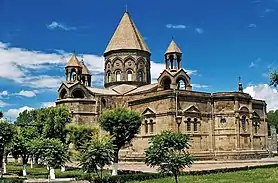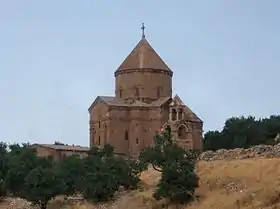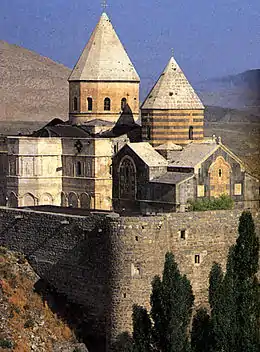Saint Thomas Monastery of Agulis
Saint Thomas Monastery of Agulis (Armenian: Ագուլիսի Սուրբ Թովմա առաքյալ վանք is an Armenian Apostolic monastery, located in Yuxarı Əylis village in Nakhchivan Autonomous Republic of Azerbaijan. It was historically built in the Goghtn district of historical Armenian province of Vaspurakan.
| Saint Thomas Monastery of Agulis | |
|---|---|
Ագուլիսի Սուրբ Թովմա առաքյալ վանք or Ագուլիսի վանք | |
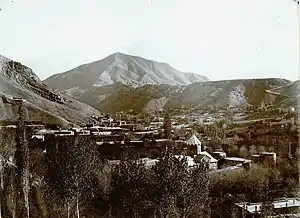 Saint Thomas Monastery of Agulis | |
| Religion | |
| Affiliation | Armenian Apostolic Church |
| Rite | Armenian Apostolic |
| Ecclesiastical or organizational status | yes |
| Status | Destroyed |
| Location | |
| Location | Yuxarı Əylis, Nakhchivan, Azerbaijan |
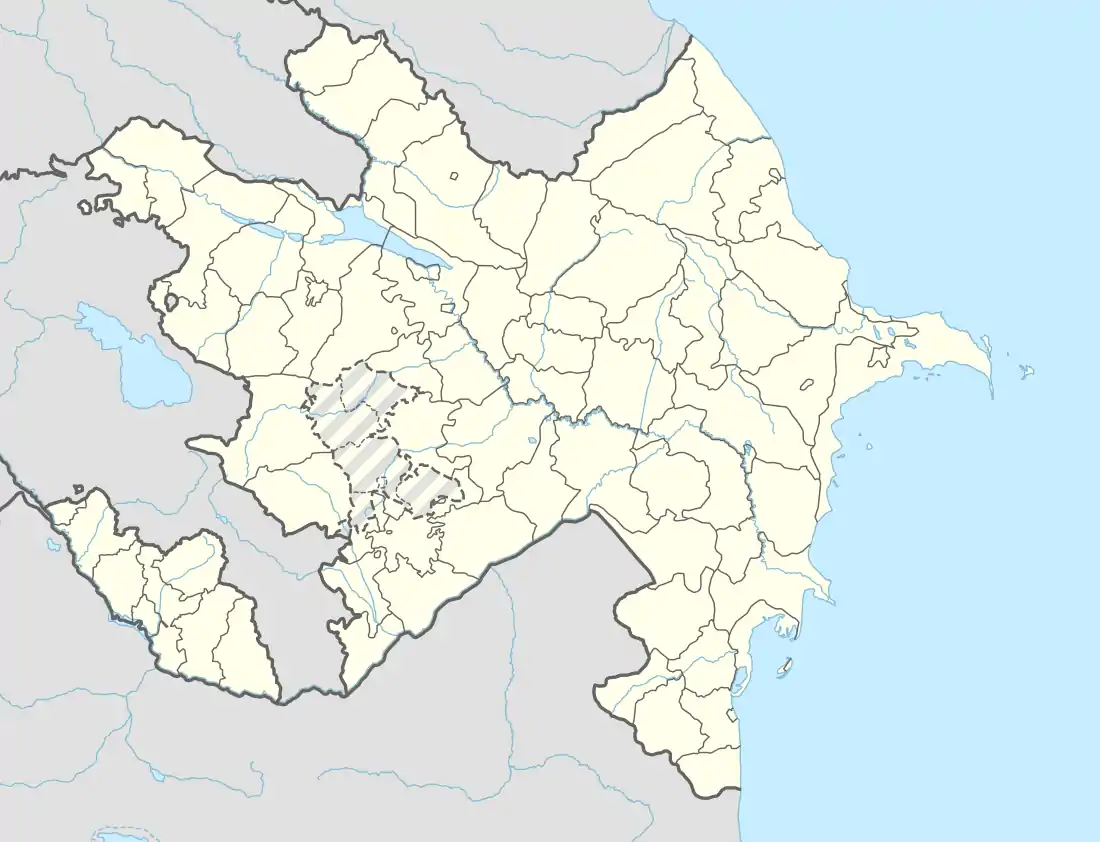 Shown within Azerbaijan | |
| Geographic coordinates | 38°57′10″N 45°58′53″E |
| Architecture | |
| Style | Armenian |
| Completed | 4th century |
History
According to tradition, St. Thomas Monastery was founded by St. Bartholomew the Apostle in the 1st century, and his pupil, Kums (hy), was appointed its priest. It was probably a small chapel-like building that was rebuilt and expanded after the conversion of Armenia to Christianity. It was the centre of Goghtn parish, from the early Middle Ages to 1838. In the monastery there were some relics: right hand of Thomas the Apostle donated by Catholicos Yeprem I in 1821, relic of St. Gayané (fr) and right hand of Hakop Hayrapet. The monastery had a cemetery belonging to the 13th to 19th centuries. It was located about 250 m northeast of the complex.
Architecture
St. Thomas Monastery consisted of a temple, bell towers, a wall and auxiliary buildings. The church of the monastery was probably damaged by the earthquake of 1679 and in 1694 a completely new church was built, with polished basalt, reddish felsite, a seven-sided tabernacle on the inside and a dome-shaped basilica with four crosses.
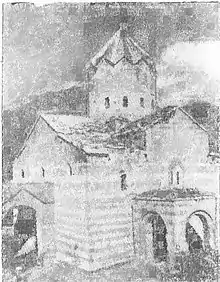
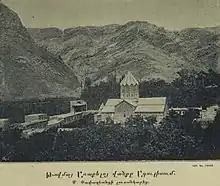

Current status
In 1918, Turkish troops destroyed Agulis, massacred the Armenian population and looted the monastery, which was later abandoned and deserted. Currently a mosque is built on the site of the monastery.
References
- Հակոբյան Թ. Խ., Մելիք-Բախշյան Ստ. Տ., Բարսեղյան Հ. Խ., Հայաստանի և հարակից շրջանների տեղանունների բառարան, հ. 1 [Դ-Կ] (խմբ. Մանուկյան Լ. Գ.), Երևան, «Երևանի Համալսարանի Հրատարակչություն», 1986, էջ 27 — 1008 էջ։
- Ստեփան Մելիք-Բախշյան, Հայոց պաշտամունքային վայրեր, Երևան, «ԵՊՀ հրատարակչություն», 2009 — 6, էջեր 6 — 432 + 10 էջ ներդիր էջ. — 500 հատ։
- Ղևոնդ Ալիշան, Սիսական, էջ 326
- Հ. Շահխաթունեանց, Ստորագրություն, էջ 325
- Ե. Լալայան, Գողթն, էջ 69
- Մ. Փափազյան. Հնութիւնք Հայրենեաց, Դ., Թ. էջ 287
- Արգամ Այվազյան, Նախիջևանի ԻՍՍՀ հայկական հուշարձանները։ Համահավաք ցուցակ (խմբ. խմբ. Բ. Ա. Ուլուբաբյան), Երևան, «Հայաստան», 1986 — 21, էջեր 21 — 224 էջ։
